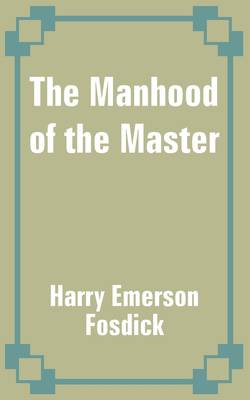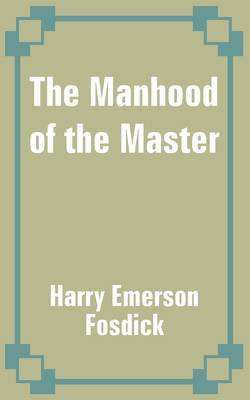
Je cadeautjes zeker op tijd in huis hebben voor de feestdagen? Kom langs in onze winkels en vind het perfecte geschenk!
- Afhalen na 1 uur in een winkel met voorraad
- Gratis thuislevering in België vanaf € 30
- Ruim aanbod met 7 miljoen producten
Je cadeautjes zeker op tijd in huis hebben voor de feestdagen? Kom langs in onze winkels en vind het perfecte geschenk!
- Afhalen na 1 uur in een winkel met voorraad
- Gratis thuislevering in België vanaf € 30
- Ruim aanbod met 7 miljoen producten
Zoeken
Omschrijving
This book is not a life of the Master nor a study of his teaching. It is an endeavor to understand and appreciate the quality of his character. The significant events of his life are considered, but only for the sake of looking through them into the spirit of the personality who was active there. The principle emphases of his teaching are noted, but only for the sake of understanding the quality of the one from whom the teaching came. Harry Emerson Fosdick (1878-1969) attended Colgate University, Union Theological Seminary, and Columbia University. Ordained in 1903, he was pastor of the First Baptist Church in Montclair, New Jersey from 1904 to 1915. At Union Theological Seminary, he was a lecturer on Baptist principles and homiletics (1908-1915) and professor of practical theology (1915-1946). He also found time to serve as associate minister at the First Presbyterian Church in Manhattan, New York (1919-1925), and pastor of Park Avenue Baptist Church (later renamed to Riverside Church) (1929-1946). He was an important figure in 20th century church history, and his eloquent efforts to defend and promote theological modernism, or liberalism, have impacted the Church in ways that are still apparent today.
Specificaties
Betrokkenen
- Auteur(s):
- Uitgeverij:
Inhoud
- Aantal bladzijden:
- 172
- Taal:
- Engels
Eigenschappen
- Productcode (EAN):
- 9781410100054
- Verschijningsdatum:
- 15/09/2002
- Uitvoering:
- Paperback
- Formaat:
- Trade paperback (VS)
- Afmetingen:
- 127 mm x 203 mm
- Gewicht:
- 158 g

Alleen bij Standaard Boekhandel
+ 27 punten op je klantenkaart van Standaard Boekhandel
Beoordelingen
We publiceren alleen reviews die voldoen aan de voorwaarden voor reviews. Bekijk onze voorwaarden voor reviews.









